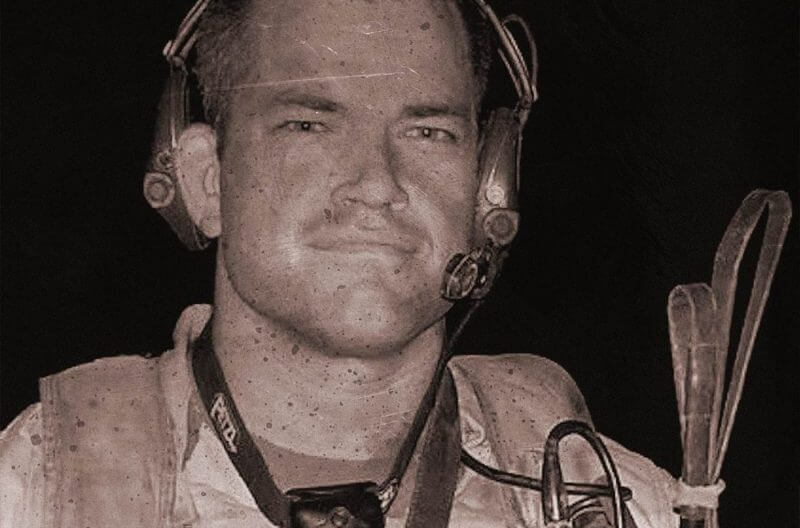Our From the Vault series examines episodes from The Art of Charm’s past more deeply; we invite you to revisit them — or discover them for the first time — with us. This From the Vault takes us back to our conversation with Jocko Willink, commander for the most highly decorated special operations unit of the Iraq War and co-author of Extreme Ownership: How U.S. Navy SEALs Lead and Win.
Episode 521: Extreme Ownership with Jocko Willink was recorded in June 2016 and is part of AoC’s Best of series. Jordan took some time to have a thoughtful conversation with the co-author of Extreme Ownership: How U.S. Navy SEALs Lead and Win; as always, Jordan brought his incisive questions and personal touch to draw some great stories out of Jocko. If you don’t know about Jocko, he spent 20 years in the Navy SEALs, first as an operator, then as an officer. He retired in 2010 after finishing a tour as Commander of Task Unit Bruiser in Ramadi, Iraq.
“Do You Miss Combat?”
Jordan barely got this question out before Jocko answered “Yes” emphatically. “The crystal-clear focus that I have in any given situation…it’s like nothing else in the world. Yes, of course I miss it.” Jordan responded: “Do you feel that you have residual paranoia as a result, then?” Once again, Jocko answered in the affirmative. He likes having that paranoia. “There is darkness in the world, and my experience in the world makes me more aware of it.”
What Really Helped to Train SEALs
While Jocko acknowledged that the physical aspects of BUD/S (Basic Underwater Demolition/SEAL) school that movies and television will usually depict in dramatic montage are important, they make up just a small component of what really prepares a SEAL for the field. When training his SEALs he focused on exposing them to realistic scenarios that would test their mental capacity for the unexpected — because their fitness level by this point in the program was already a given. He would hire actors and consultants to help him put together a mock town for staging scenarios his troops might possibly face.
An example: as the trainees enter a room in this mock town, a fake bomb goes off. An amputee actor with blood spraying everywhere has lost a leg and is in need of medical attention. An arriving medic draws fire while other actors mimic Iraqis who don’t know a word of English. The scene is utter chaos, but the SEALs in training have to adapt — it’s a crash course in Jocko’s radical view of what training should look and sound and feel like.
Jocko wanted his teams to understand that combat is an exercise in creativity. The enemy, terrain, allies, and equipment will not react in expected ways. In fact they will all invariably manifest to you in unexpected ways, and to survive and thrive you need to be open, agile, and creative.
What Is Extreme Ownership?
Extreme ownership is a phrase that Jocko coined in his co-authored book by the same name. It is “an attitude of not ever making excuses or blaming others: when problems arise you take ownership and solve it.” Jocko pointed out that such an attitude, held by those in leadership positions, inevitably filters down to subordinates (whether in the military or civilian world) and they begin imitating it. Because no one wants to be the person who blames others, blaming a subordinate actually reflects poorly on you. It means you have failed in leading them.
Jordan shared a story of someone he saw getting thrown under the bus recently by their boss and thought the same thing: that it wasn’t the person who got thrown under the bus that was the problem, it was the person who did the blaming.
This attitude of extreme ownership leads to reflections and continual improvement — an attitude of never being satisfied.
If you’re interested in this iterative process of improvement, take a listen to Jocko’s interview with our friend and colleague Brett McKay at the Art of Manliness. At the 33:37 mark they discuss the OODA loop and SMEAC, military acronyms that are well suited to personal improvement in civilian life as well.
“There Are No Bad Teams. Only Bad Leaders.”
Jocko shared a really interesting story from Hell Week at BUD/S. Imagine that you’ve been awake for five or six days and your crew of five to seven guys is racing against other crews. Winning would allow you to rest. In this exercise, Boat Crew #2 was winning all of the races and Boat Crew #6 was losing them all. Jocko decided to pull those who were leading both crews and switched them. Surprisingly (or unsurprisingly to Jocko), Boat Crew #6 started winning. This was another data point to reinforce Jocko’s notion of extreme ownership. Don’t blame your team. Blame yourself. Then you can begin to fix the problem.
Is There Such a Thing as a Natural Leader?
“Yes, I’ve seen it in business and in the military.” But then Jocko goes on to point out that having nature on your side doesn’t mean nurture has no role. “Studying leadership is only going to build on your natural ability. But what will stand in your way is pride. The untrainable leader lacks humility.” Jocko wants someone who is ready to listen, who has a loud voice (or is willing to develop it or use his team to amplify his voice), and who can be detached from chaos and focuses on the task at hand.
Combat itself is very humbling because of the intensity it forces upon you. That readiness to listen is the doorway to humility, which allows you to assess yourself and make the improvements you need.
From the Vault highlights a number of concepts developed in a given episode, but there’s lots more to hear — including Jocko’s rejection of the concept of “decision fatigue” as well as his belief that discipline actually equals freedom. Listen to the whole podcast here.
What do you think of the concept of Extreme ownership? Will you apply it in your work and personal life? Send your thoughts to to [email protected].
If this article or episode helped you, please consider writing a review for us on iTunes, because the greatest compliment you can give us is a referral to someone you think would appreciate this content. Now get out there and leave everyone better than you found them.



